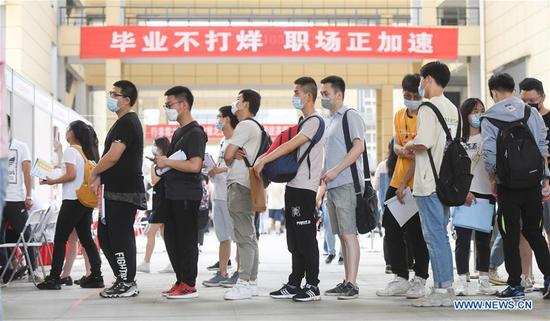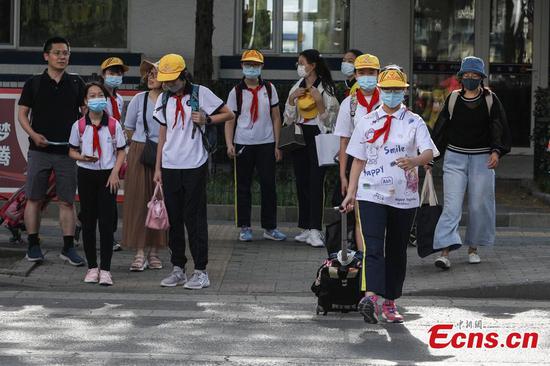A study published on Friday has found that hydroxychloroquine -- with or without azithromycin -- did not reduce the risk of ventilation or death, and was associated with longer length of hospital stay.
The study of electronic medical records from U.S. Veterans Health Administration medical centers was published in the journal Med, which is the first in the United States to report data on hydroxychloroquine outcomes for COVID-19 from a nationwide integrated health system.
U.S. researchers included data from 807 people hospitalized with COVID-19 at Veterans Affairs medical centers around the country. About half of them did not receive hydroxychloroquine at any time during their hospitalization.
Among those who did, 198 patients were treated with hydroxychloroquine, and 214 were treated with both hydroxychloroquine and azithromycin. Most of the patients given hydroxychloroquine received it before being put on a mechanical ventilator.
After adjustment for clinical characteristics, the risk of death from any cause was higher in the hydroxychloroquine group but not in the hydroxychloroquine plus azithromycin group, when these were compared with the no-hydroxychloroquine group, according to the study.
The researchers also found that the length of hospital stay was 33 percent longer in the hydroxychloroquine group and 38 percent longer in the hydroxychloroquine plus azithromycin group, than in the no-hydroxychloroquine group.
Pre-existing conditions, such as cardiovascular disease, chronic obstructive pulmonary disease and diabetes, were relatively common and similar across all groups, according to the study.
The researchers said the study has strengths that earlier studies have not had because it employed data from comprehensive electronic medical records, rather than administrative health insurance claims. Additionally, because the data came from an integrated national health care system, the findings were less susceptible to biases that might occur in a single-center or regional study.
But they also acknowledged limitations. The median age in the study was 70 years, and the findings might not apply to younger people with COVID-19. Furthermore, 96 percent of the patients in the study were overwhelmingly male, reflecting the demographics of veterans.


















































